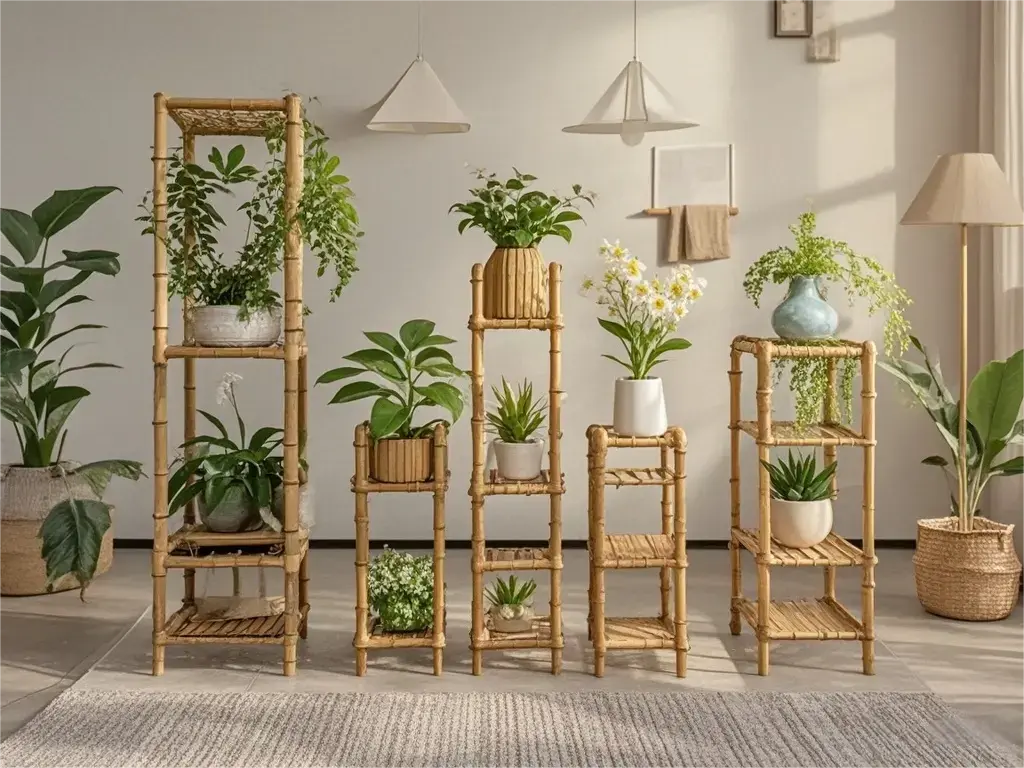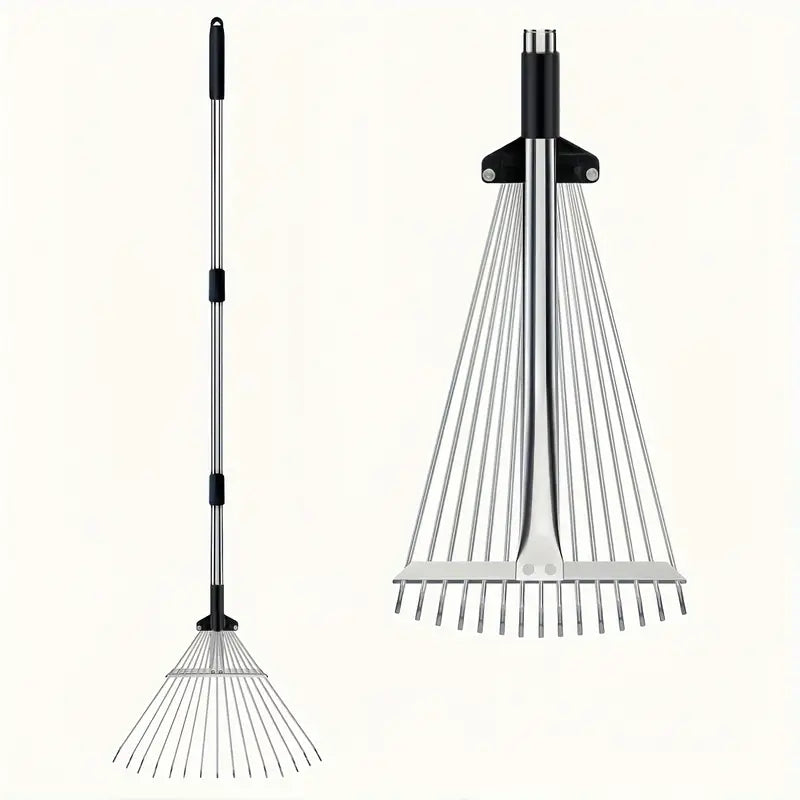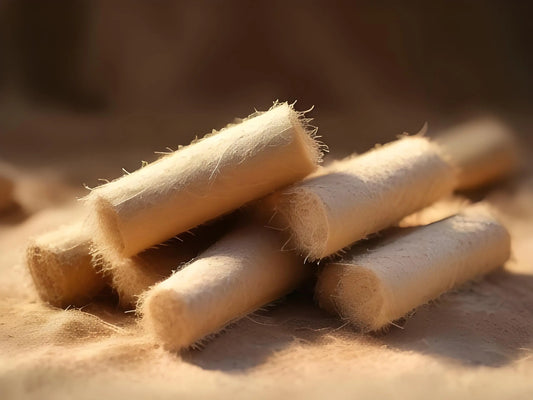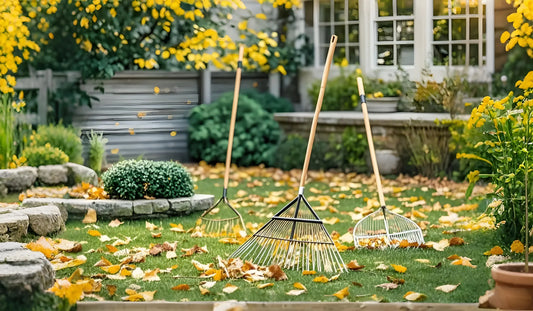
How Bamboo Products Contribute to Sustainable Home Design
Contents
- Summary
- Introduction
- The Case for Bamboo: A Sustainable Material
- Bamboo in Interior Design: Aesthetic and Functional Benefits
- Bamboo Plant Stands: Supporting an Eco-Friendly Lifestyle
- Incorporating Bamboo Products into Your Home
- The Broader Impact of Choosing Bamboo
- Challenges and Considerations
- Conclusion: A Step Toward a Greener Future
Summary
This article explores the significant role bamboo products, particularly bamboo plant stands, play in promoting eco-friendly living. Bamboo’s rapid growth, renewability, and low environmental impact make it a sustainable alternative to traditional materials. By incorporating bamboo into home design, individuals can contribute to broader environmental goals while enhancing their living spaces. The article also highlights the broader implications of choosing bamboo, including supporting sustainable practices and fair trade, and offers a critical perspective on the challenges and considerations of using bamboo products.
1. Introduction
In today's world, where environmental sustainability is more important than ever, individuals and households are increasingly looking for ways to reduce their carbon footprint. One of the most effective ways to do this is by adopting a green lifestyle, which often starts right at home. From energy-efficient appliances to waste reduction practices, there are countless ways to live more sustainably. Among these, the use of bamboo products, specifically bamboo plant stands, stands out as a powerful yet often overlooked method of creating a more eco-friendly living space.
2. The Case for Bamboo: A Sustainable Material
Bamboo is a remarkable plant. Unlike hardwood trees, which can take decades to mature, bamboo is a type of grass that can grow up to 35 inches per day and reach full maturity within 3 to 5 years. This rapid growth rate makes bamboo one of the most renewable resources on the planet. In addition, bamboo does not require replanting after harvest because it regenerates from its own root system. This means that bamboo forests can be harvested repeatedly without causing long-term damage to the ecosystem.
Another environmental benefit of bamboo is its ability to absorb carbon dioxide and release oxygen into the atmosphere at a higher rate than most trees. Bamboo plantations can act as carbon sinks, helping to mitigate the effects of climate change by reducing the concentration of greenhouse gases in the atmosphere. In addition, bamboo's natural resilience and minimal need for pesticides or fertilizers further reduce its environmental impact compared to conventional timber production.
3. Bamboo in Interior Design: Aesthetic and Functional Benefits
Bamboo's environmental benefits are matched by its versatility as a material for home design. Bamboo products such as furniture, flooring, and plant stands offer a unique combination of strength, durability, and aesthetic appeal. The natural texture and color of bamboo add warmth and a touch of nature to any room, creating a serene and inviting atmosphere. In addition, bamboo is lightweight yet incredibly strong, making it an ideal material for a variety of home furnishings.
One of the outstanding bamboo products in home design is the bamboo plant stand. These stands are not only functional, but also contribute to the overall aesthetics of a room. Bamboo plant stands come in a variety of styles, sizes, and designs, allowing homeowners to select pieces that complement their existing décor while promoting an eco-friendly lifestyle. Whether used indoors or outdoors, bamboo plant stands provide a stylish way to display plants and enhance the natural beauty of the room.
4. Bamboo Plant Stands: Supporting an Eco-Friendly Lifestyle
Bamboo plant stands play an important role in promoting an eco-friendly lifestyle. By choosing bamboo over other materials, homeowners can make a conscious decision to support sustainability. Bamboo plant stands are biodegradable, which means they can be composted at the end of their life cycle, reducing waste and the need for landfill space. This is in stark contrast to plastic or metal plant stands, which often end up as non-biodegradable waste.

In addition, bamboo plant stands are often handcrafted by artisans in communities that rely on sustainable bamboo cultivation. By purchasing these products, consumers are not only supporting environmentally friendly practices, but also contributing to the livelihoods of people in developing regions. This ethical aspect adds another layer of sustainability by promoting fair trade and supporting economies that prioritize environmental stewardship.
5. Incorporating Bamboo Products into Your Home
Incorporating bamboo products into your home is a simple yet effective way to embrace an eco-friendly lifestyle. Start by evaluating your current home decor and identifying areas where you can replace traditional materials with bamboo alternatives. For example, if you have metal or plastic plant stands, consider replacing them with bamboo stands. Not only will this reduce your dependence on non-renewable resources, but it will also add a natural, organic touch to your home.
In addition to plant stands, bamboo can be used in several other aspects of home design. Bamboo flooring is a popular choice for those looking to create a sustainable home, as it is both durable and aesthetically pleasing. Bamboo furniture, such as chairs, tables, and shelves, can also be incorporated into your home to replace pieces made from less sustainable materials. Even small changes, such as using bamboo utensils or cutting boards in the kitchen, can make a significant difference in reducing your environmental impact.
6. The Broader Impact of Choosing Bamboo
The decision to incorporate bamboo products into your home goes beyond personal benefits; it contributes to broader environmental goals. As more people choose bamboo over traditional materials, the demand for sustainable products increases, encouraging manufacturers to prioritize eco-friendly practices. This shift in consumer behavior can lead to a reduction in deforestation, as bamboo plantations provide an alternative to logging hardwood forests. In addition, supporting bamboo products helps raise awareness about the importance of sustainable living and inspires others to make eco-conscious choices in their own lives.
7. Challenges and Considerations
While bamboo is undoubtedly a sustainable material, it is important to approach its use with a critical eye. Not all bamboo products are created equal, and some may be produced using methods that undermine the plant's environmental benefits. For example, certain bamboo processing techniques involve the use of harsh chemicals that can be harmful to both the environment and human health. Therefore, when purchasing bamboo products, it is important to choose those that are certified organic or sustainably sourced.
In addition, while bamboo is a rapidly renewable resource, the expansion of bamboo plantations must be carefully managed to avoid displacing natural ecosystems or local communities. Responsible bamboo cultivation practices prioritize the conservation of biodiversity and the rights of indigenous peoples. Consumers can support these practices by choosing products from companies that adhere to fair trade and environmental standards.
8. Conclusion: A Step Toward a Greener Future
Embracing a green lifestyle is a journey that involves making mindful choices in every aspect of life, including home design. By incorporating bamboo products such as plant stands into your living space, you are not only enhancing the beauty and functionality of your home, but also contributing to a more sustainable and environmentally responsible world. Bamboo's unique properties make it an ideal material for those committed to reducing their carbon footprint and supporting sustainable practices. As more people recognize the benefits of bamboo, it has the potential to become a cornerstone of eco-friendly living, paving the way for a greener future for all.
Tags:
- Eco-friendly living
- Sustainable home design
- Bamboo products
- Bamboo plant stands
- Green lifestyle
- Environmental sustainability
- Renewable materials
- Ethical consumerism
- Home decor trends
- Sustainable materials
𝐅𝐞𝐚𝐭𝐮𝐫𝐞𝐝 𝐁𝐥𝐨𝐠𝐬:
9 Must-Have Plant Stands for a Stylish Home in Early 2024Where Should a Plant Stand be Placed?





1 comment
need to embrace a green lifestyle